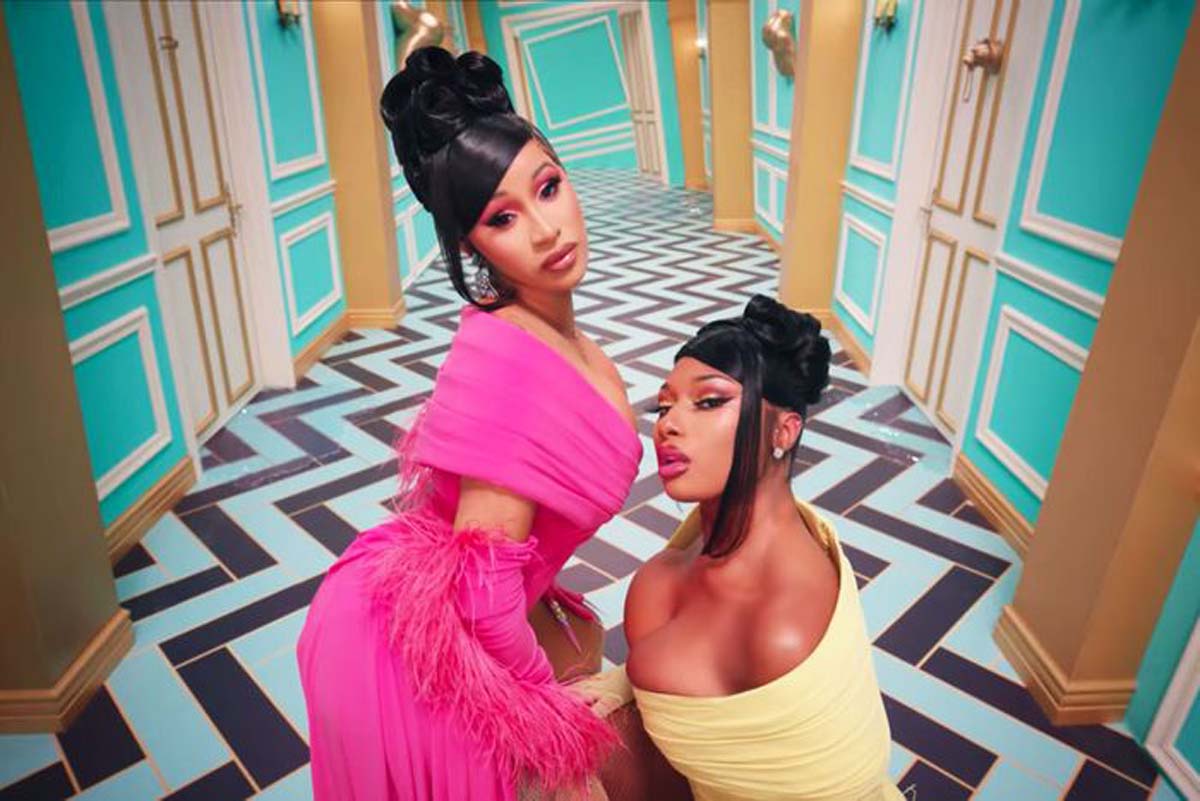Parvez Dewan
For the last few weeks, the international pop charts have been dominated by a song called ‘cardigan’ and a singer called Cardi B. Both are super hits. However, in terms of dignity, the two are at the absolute opposite ends of the spectrum of family- friendliness.
‘cardigan’ is a soft, delicately crafted song from megastar Taylor Swift’s new album folklore. Swift debuted in 2006, at age 16, with a song that reached no.1 on the charts. By 2008, just two years later, no lover of English- language pop in Jammu, Kashmir, Ladakh, or elsewhere was left unaffected by her ‘You Belong with Me.’
In that song Taylor Swift is the serious, studious, bespectacled teenage girl with a crush on a boy whose girlfriend, she believes, doesn’t deserve him. Her rival ‘wears short skirts [while] I wear T-shirts… she wears high heels, [while] I wear sneakers.’ Her rival’s glamorous edge is stacked against our heroine. However, she is confident that, at the end of the day, the boy really belongs with her.
Twelve years on, in 2020, Swift, by now 30 years old, is such a big star that all the advantages are now on her side. She has even started wearing ‘high heels on cobblestones.’
And yet not one but two girls in short skirts-actually no skirts at all, just leotards- and high heels are providing her stiff competition. These are Cardi B and Megan Thee Stallion, who too are at the top of the charts with their equally popular song, ‘WAP.’
The two songs could not have been more different. ‘cardigan’ talks of a gentle, feminine young girl who has been thrown aside like an old sweater (‘I felt like I was an old cardigan/ Under someone’s bed/ You put me on and said I was your favourite’). In ‘Cardigan,’ too, she is caught in a triangle with a two-timing boy. (‘A friend to all is a friend to none/ Chase two girls, lose the one.’)
There is nothing shy, gentle, or retiring about Cardi B and Megan Thee, the two young ladies who live in an opulent mansion of desire. They have physical cravings, which they express frankly, more frankly than in any other mainstream song in the history of recorded music in English or an Indian language. If ‘cardigan’ has a lilting tune gently picked on a piano, ‘WAP’ is tuneless rap that has shot to the top because of its vulgar, all right, explicit lyrics.
In India, too, some songs crossed the line and did so ages ago. Anand Bakshi’s ‘Juma chumma de de’ (1991), ‘Saat saheliyan’ (1982) and ‘Doctor babu der na kar’ (1984) were all considered unfit for family consumption.
But ‘WAP’ has its defenders, and at the highest level at that. They support it on the grounds of feminism and female empowerment.
However, Megan Thee sees herself not as a crusading feminist but something much higher, indeed something ‘classy.’ In her ‘Savage,’ which is every bit as, um, explicit as ‘WAP’ she describes herself as ‘classy,’ despite her very inelegant language. A remix of ‘Savage,’ featuring Beyonce, was released in May, during the lockdown, perhaps to prepare us for ‘WAP.’
The UK’s champion of literate causes, The Guardian, wrote that ‘Cardi B and Megan Thee Stallion’s ‘WAP’ should be celebrated … The hit collaboration between the two rappers has become a belated song of the summer, empowering women and enraging prudes…’
The highly respected New York Times, too, supported it along feminist lines. It wrote, ‘Men rap and sing about sex in preposterous and sometimes awkward detail all the time. It’s beyond time that the same courtesy is extended to women like Cardi B…’
Absolutely it should be. The argument is unexceptionable. There has to be parity between the two sexes. However, has a song written by a man ever been as graphic as ‘WAP’?
Earlier this year there was a cheeky little song that balanced the two sexes. The point that it made was that both men and women wanted the same thing.
Camila Cabello, best known in Jammu for ‘Senorita’ (2018), said all this, but without words not used in polite company:
He’s only here for one thing
But (so am I)
(The author is the founder of Indpaedia.com, the Jammu- based free, national encyclopaedia.)
Trending Now
E-Paper


